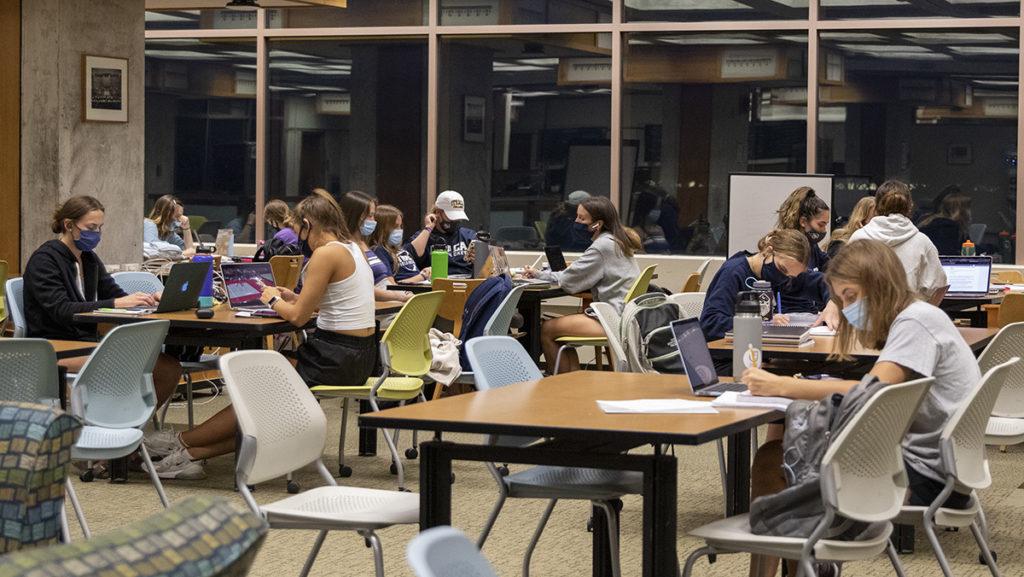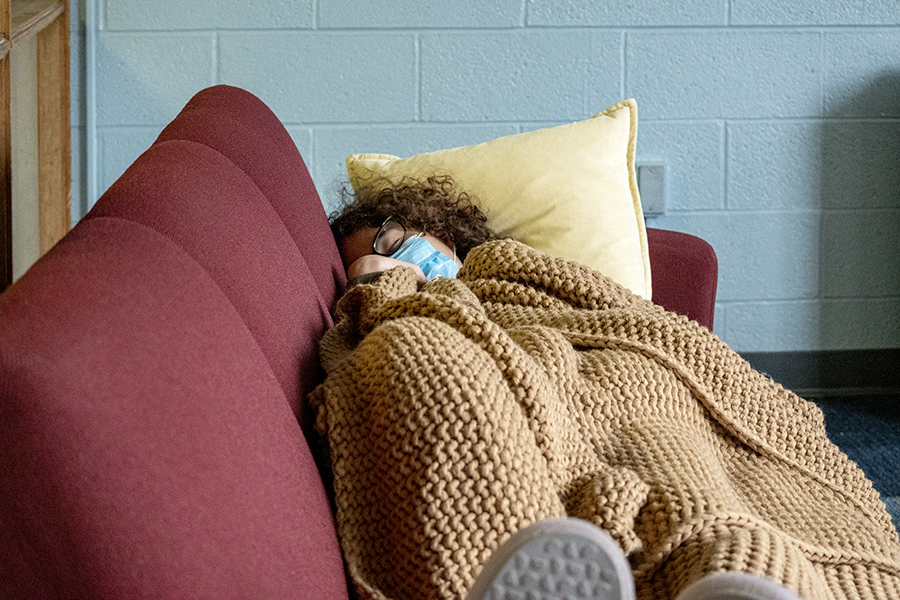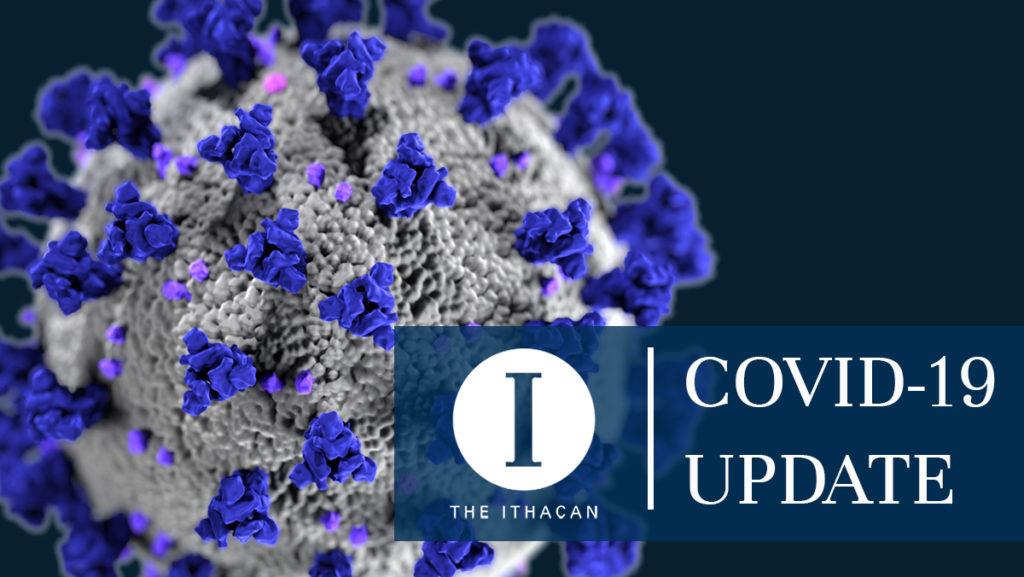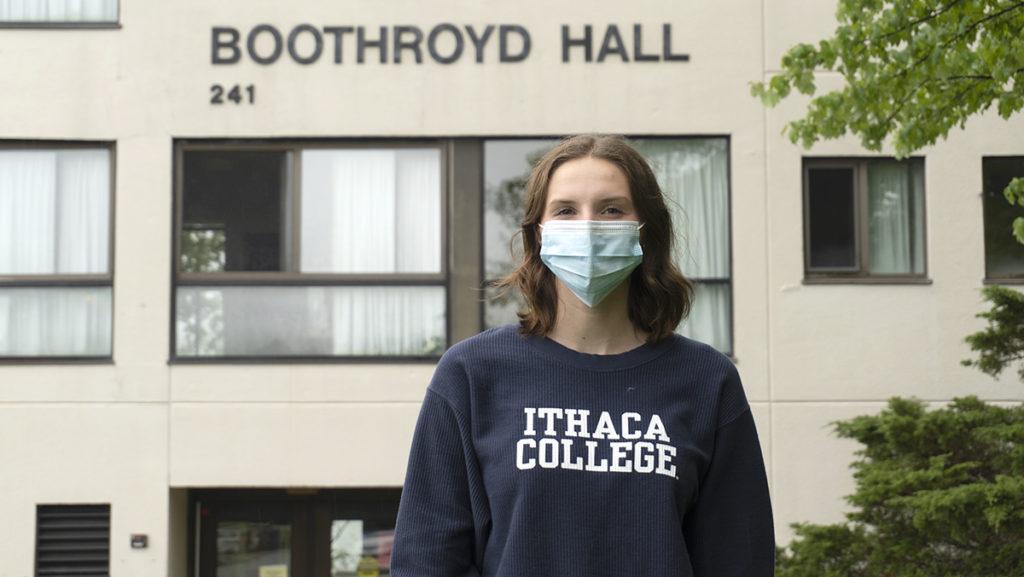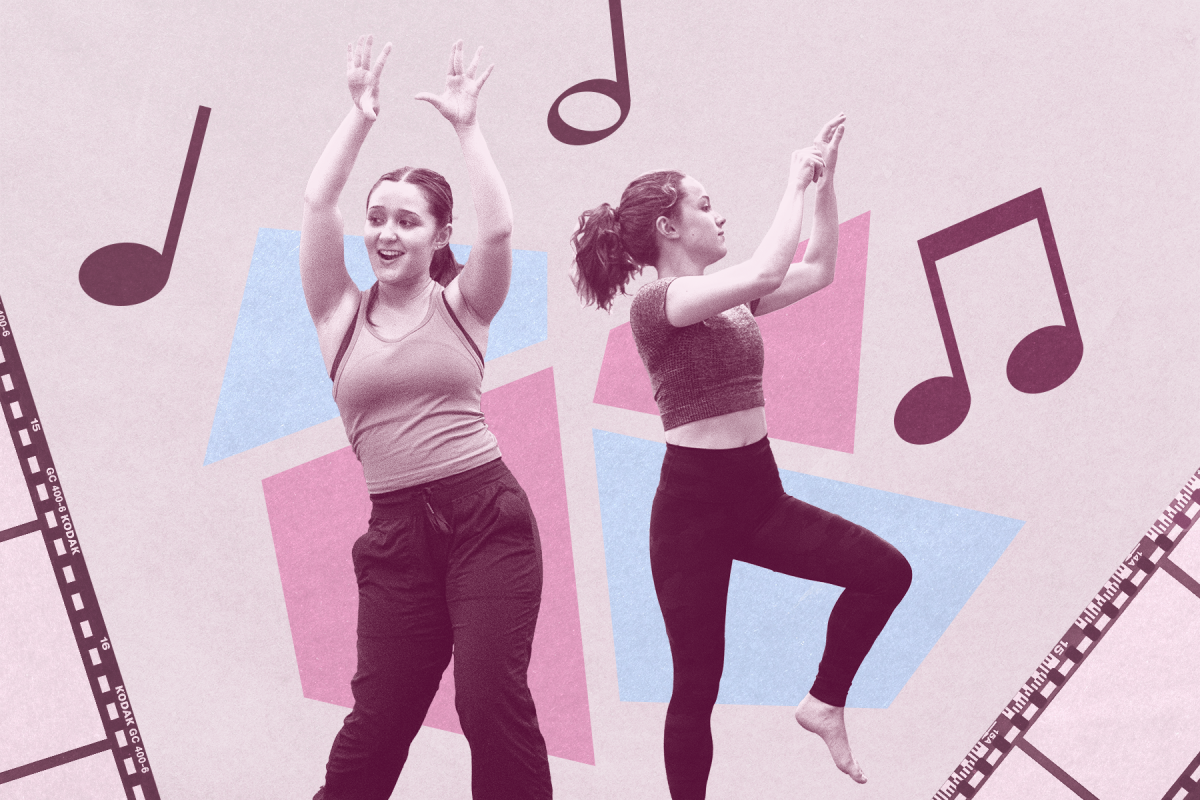Starting March 4, Ithaca College will not require face masks to be worn within any indoor locations, unless clearly stated otherwise, regardless of individual vaccination status.
In a March 1 email to the campus community, Samm Swarts, director for Emergency Preparedness and Response, announced the policy change, citing the Tompkins County Health Department (TCHD)’s Feb. 28 suspension of the mask advisory. However, the college is allowing faculty members to decide what the mask policies will be for their classrooms and is asking faculty to tell students what will be requested as soon as possible.
The Ithaca City School District has also suspended its mandate and masks are no longer required indoors, outdoors or on school buses. In the past seven days, the county reported fewer than 200 new cases for every 100,000 people and less than 10% of hospital beds in the county are occupied by patients with COVID-19.
While the college’s library is following guidance to drop the mask mandate, the LGBT Center will continue to require masks for the time being. The announcement said masks will still be required in healthcare settings, like Emerson Residence Hall, Hammond Health Center and health professions clinics.
Swarts made clear in the announcement that if COVID-19 case numbers rise dramatically and there is a high rate of transmission, the campus will resort back to wearing masks regardless of TCHD guidance.
“While this new guidance is encouraging and welcomed news for many, I would like to recognize that this update might also spur some anxiety as well,” the email stated. “This change will once again require us to recalibrate as a campus community and be supportive of differing tolerance for the risks associated with COVID-19.”
As of now, Cornell University has not dropped its mask mandate but other colleges in the United States are. According to Inside Higher Ed, public colleges are following states like California, Connecticut, Delaware, Nevada, New Jersey, New York and Oregon that are changing mask mandates.
Junior Cali Trainor said that when she heard that the college’s mask mandate would be dropped, she felt anxious and angry.
“I myself am immunocompromised,” Trainor said. “I am just concerned that the campus is not going to be doing anything to protect other immunocompromised and at-risk people like myself. A lot of the reason I felt comfortable coming on campus this semester was knowing that almost everyone has to be vaccinated.”
Trainor said now that the mandate has been dropped, she will have to make more difficult decisions regarding her health.
“It’s putting us in a really uncomfortable situation because now I have to decide between my health and well–being and my grades potentially,” Trainor said.
In response to student and faculty concerns, Swarts said via email that the college has followed the guidance of the TCHD and the Centers for Disease Control and Prevention (CDC) when it comes to masking since the beginning of the pandemic. He said the college will continue to align with the county’s decisions.
“I have heard from many students about their discomfort with the new masking guidance on campus,” Swarts said. “I am listening to these concerns and will relay them back to the Senior Leadership team for further conversation.”
The Ithaca College COVID-19 risk level has been at “Green: Lower Risk” since Feb. 4. As of March 2, there are currently 20 active student COVID-19 cases and five active employee cases according to the COVID-19 dashboard. There are 13 rooms being utilized to quarantine in Emerson Hall for students who tested positive.
Other members of the campus community like junior Noah Schwartz are excited to see changes that show the world is beginning to recover from COVID-19. Schwartz said he has been extremely vigilant with COVID-19 safety the past two years, but feels like if the county is saying masks are no longer necessary then it is time to end the mandate on campus.
“I’m just happy that we’re going to move past it and we can just have our open faces again, and hopefully that kind of brings some normalcy back to the campus,” Schwartz said. “I think we can take these steps and then backtrack if we need to, but I’m hoping this is the start of something positive pushing us forward.”
When the TCHD announced that it would drop its mask advisory, it attributed the county’s drop in positive COVID-19 cases and hospitalizations — bringing the county into the “Low” category for COVID-19 risk under the CDC measuring framework.
In a statement, Frank Kruppa, Tompkins County public health director, said to stay vigilant with personal safety and vaccinations as the region moves forward with new guidance.
“We’re in a place where we are seeing very little spread and severe disease locally and around the state,” Kruppa said in the statement. “While we’re moving forward with new guidance it’s important to continue to stay vigilant and we are encouraging everyone who is eligible to stay up-to-date on vaccination.”
Stewart Auyash, associate professor in the Department of Health Promotion and Physical Education, said he will continue to wear a mask and have his students wear them too. He also said the announcement might have glossed over important reminders about public health.
“They didn’t do enough to remind people that there is still a significant number of people who are elderly, or below five years old, or who can’t get vaccinated because of their immune systems,” Auyash said. “And support should have been mentioned for those people who still want to wear masks and have to wear masks.”
Swarts confirmed surveillance testing will continue to be offered for now and testing protocols for returning from spring break will be announced next week.
Spring break is from March 12–20 and Auyash said he feels the college could have waited until afterward to drop the mask mandate so students — but especially faculty — could have time to plan for it. He said this has the potential to put a significant amount of pressure on faculty to make decisions about their students’ health and safety which they may be uncomfortable with.
While Swarts did acknowledge general nervousness and concern surrounding the change, he said he did not think faculty were given any more responsibility than usual.
“Professors have the autonomy to make decisions about what is and what is not allowed in their class as it relates to a variety of things,” Swarts said via email. “Allowing them to make these decisions about masking is no different. If faculty have concerns or questions on how to make these decisions, they should work with their respective dean’s office.”
News editor Elijah de Castro contributed reporting



